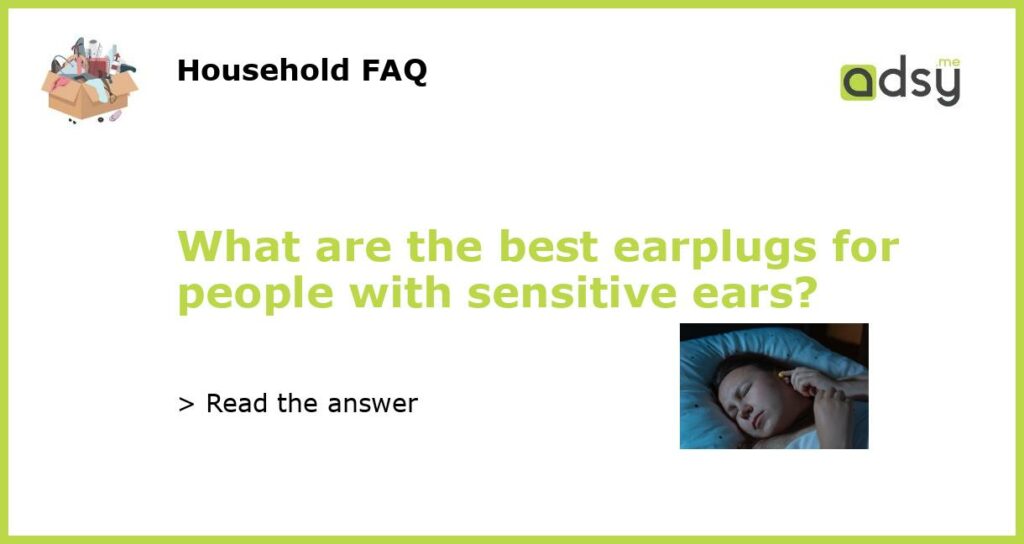Understanding Earplugs for Sensitive Ears
For people with sensitive ears, noise can trigger discomfort, physical pain, or tinnitus. Unfortunately, some earplugs fail to filter noise effectively, while others insert too deeply, leading to pressure and pain. Hence, selecting the best earplug involves evaluating factors such as noise reduction rating (NRR), shape, materials, size, and comfort.
Top Earplugs for Sensitive Ears
Here are some recommended earplugs for people with sensitive ears:
- 3M Peltor Next Skull Screw Earplugs: These earplugs have an NRR of 30dB and a patented shell design that minimizes pressure, making them comfortable even for long-duration wear. They are also easy to insert and remove.
- Decibullz Custom-Molded Earplugs: These earplugs come with a heat-moldable thermoplastic shell that conforms to the shape of your ear, creating a snug fit and reducing external sounds by up to 31dB. They are also washable and reusable.
- Mack’s Pillow Soft Silicone Earplugs: These earplugs are made of non-toxic silicone and mold to the shape of your ear canal, providing noise reduction of up to 22dB. They are also water-resistant, making them ideal for swimming or showering.
Tips for Choosing the Right Earplugs
When selecting earplugs for sensitive ears, consider the following:
- Material: Look for hypoallergenic, non-toxic, and non-irritating materials such as silicone, foam, or wax.
- Size: Choose earplugs that fit your ear canal without inserting too deeply or putting too much pressure on your ear drum.
- NRR: Check the noise reduction rating of the earplugs to ensure they can filter out the specific noise level of your environment.
- Application: Depending on your needs, you may choose earplugs that are disposable, reusable, custom-molded, or designed for specific activities like sleeping or swimming.
Selecting the best earplugs for sensitive ears can help reduce discomfort, pain, and anxiety caused by noise. By considering factors such as NRR, material, size, and application, you can find earplugs that fit your unique needs and preferences. Remember to test them in different environments and adjust their fit if necessary, to optimize their effectiveness and comfort.






